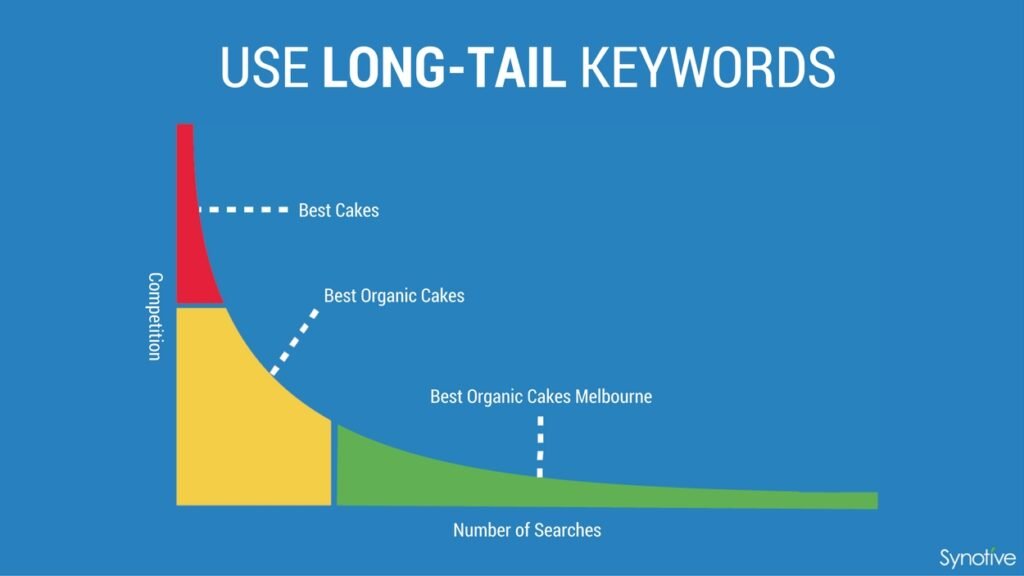In the competitive world of cosmetic enhancement, standing out online with an effective SEO plastic surgery website and engaging plastic surgery content is crucial for your practice. Plastic surgery SEO is not just about getting your website to the top of search engine results; it’s about connecting with potential patients in meaningful ways, enhancing online visibility, and securing inbound links through a blog to reach more people.
By optimizing your online presence, including inbound links and map results, you ensure that when prospective patients search for plastic surgery options and information, they find you first and feel compelled to reach out. This guide will explore how targeted strategies can elevate your practice above the competition in search results and map results, ensuring that your services and information shine in a crowded marketplace with enhanced online visibility.
Importance of SEO in Plastic Surgery Marketing
Boost Visibility
SEO helps your plastic surgery practice become more visible online, ensuring procedure pages and information appear in map results to people searching. When potential patients search for services you offer, a strong SEO strategy ensures they find you first, helping people see your pages and map results. This is crucial because most people rarely look beyond the first page of search results, which is why well-executed plastic surgery SEO can help pages rank better.
By optimizing your plastic surgery SEO website with relevant keywords, you increase the chances that your site appears at the top of search engine results pages (SERPs), helping people find you more easily. This help makes it easier for potential patients to discover your practice on pages and map results, helping people. Remember, visibility is key in attracting new patients.
Increase Traffic
A well-implemented SEO strategy drives more people and more traffic to your website pages. More visitors to plastic surgery SEO pages mean more opportunities to convert them into consultation bookings. It’s simple math: higher website traffic from optimized plastic surgery SEO pages leads to a higher number of potential patient inquiries and appointments.

To achieve this, focus on creating quality content pages that answer common questions about plastic surgery procedures and recovery times. Such content not only attracts visitors to your pages but also positions you as an authority in the field of plastic surgery marketing.
Outrank Competitors
In today’s competitive landscape, outranking competitors in SERPs with plastic surgery SEO can make or break your practice’s pages. An effective SEO campaign allows you to stand out among other plastic surgeons by showcasing what sets your surgery practice apart on your pages.
Consider implementing local SEO strategies for your plastic surgery pages like optimizing for local keywords or claiming your Google My Business listing. These steps, including surgery SEO and optimizing your pages, help ensure when someone searches for a plastic surgeon in their area; it’s your name that comes up first.
A Guide for Getting New Plastic Surgery Patients Online
Technical Aspects
Your plastic surgery SEO strategy must cover technical aspects. These ensure your plastic surgery seo pages are easily found and indexed by search engines.
First, focus on site speed. A fast-loading website keeps visitors engaged longer. Use tools to measure and improve your site’s speed regularly.
Next, mobile optimization is crucial. More searches happen on phones now than ever before. Make sure your plastic surgery SEO site looks good and functions well on all devices.
Content-Driven Approaches
Content plays a big role in attracting the right audience for plastic surgery. Your content should answer potential patients’ questions and concerns about plastic surgery.
Create informative blog posts, FAQs, and detailed service pages. Use keywords that match what people are searching for regarding plastic surgery services.
Include before-and-after galleries or patient testimonials related to plastic surgery to build trust with prospective clients.
Social Media Integration
Social media can’t be ignored in your plastic surgery SEO plan. It helps reach more people through engaging content sharing.
Platforms like Instagram are perfect for showcasing visual results of plastic surgeries.
Encourage happy plastic surgery patients to leave reviews online, including social media platforms and Google My Business listings.
Review Platforms Utilization
Reviews impact how potential patients see your practice. They also affect SEO rankings directly.
Ask satisfied plastic surgery patients to share their experiences on popular review sites like Yelp or Healthgrades. Monitor these platforms for any negative feedback too so you can address issues promptly.
Keyword Research and Optimization Techniques
High-Intent Keywords
To boost your plastic surgery SEO, identifying high-intent keywords is crucial. These are terms potential clients use when they’re ready to book a plastic surgery service or learn more about procedures. For example, “best rhinoplasty surgeon near me” shows a clear intent to find a specific plastic surgery service.
Using tools like Google’s Search Console helps you discover these relevant keywords. It provides insights into search volume and how certain searches related to plastic surgery lead to your site. This data enables you to refine your SEO strategy for plastic surgery and target the right audience.
Long-Tail Keywords

Incorporating long-tail keywords related to plastic surgery into your content can significantly improve organic traffic from niche queries. These longer phrases, such as “non-surgical nose job options,” cater to very specific searches related to plastic surgery that have less competition but highly interested users.
Placing these keywords strategically in titles, headers, and meta descriptions enhances visibility on search engine results pages (SERPs) for plastic surgery. This approach not only boosts organic search rankings but also ensures the plastic surgery content matches what potential patients are searching for.
Strategic Placement
For effective plastic surgery SEO, where you place your keywords matters as much as which ones you choose. The most impactful locations include:
- Page titles
- Headings (H1s, H2s)
- Meta descriptions
- First 100 words of content
This strategic placement helps search engines understand the relevance of your page to specific queries about plastic surgery, improving both visibility in SERPs and link equity.
Remembering that quality content drives SEO success is essential. Engaging articles or blog posts that answer common questions or explore new trends in plastic surgery can attract more visitors through organic search results while reinforcing keyword strategy effectiveness.
On-Page and Off-Page SEO Essentials
Site Structure
Improving your site structure boosts SEO. It makes it easier for search engines to crawl your web pages. Focus on internal linking between blog posts and plastic surgery procedure pages. This approach guides visitors smoothly through your site, enhancing their experience.
A well-structured website includes a clear hierarchy of information and easy navigation. Use breadcrumb markup to further improve user orientation and crawlability. Ensure that every page is reachable with a few clicks from the home page.
Quality Backlinks
Securing backlinks from reputable medical and plastic surgery websites enhances your online visibility. These inbound links act as votes of confidence in the eyes of search engines, boosting your credibility.
Start by creating high-quality content that naturally attracts links from other sites. Reach out to local news outlets or medical blogs for collaboration opportunities. Remember, quality over quantity; one link from a respected source is worth more than many low-quality links.
Multimedia Optimization
Optimizing images and multimedia elements speeds up loading times on your site. Slow-loading pages frustrate users and harm SEO rankings.
Compress images before uploading them without sacrificing quality for faster load times. Use descriptive file names and alt tags for each image, incorporating relevant keywords where possible. This not only aids in SEO but also improves accessibility for users with visual impairments.
Local SEO Tactics for Plastic Surgeons
Google My Business
Claiming and optimizing your Google My Business (GMB) listing is crucial. It helps patients find you easily. Make sure your profile includes accurate contact information, services, and operating hours.
Encourage satisfied patients to leave positive reviews on your GMB listing. Reviews boost your visibility in local searches. They also build trust with potential clients.
Geo-Specific Keywords
Focus on geo-specific keywords in your content strategy. These are terms that include locations near your practice. For example, “plastic surgeons in Miami” targets individuals searching in that area.
Incorporate these keywords naturally into website content, blog posts, and meta descriptions. This approach improves rankings for local searches relevant to plastic surgeons.
Building Authority and Trustworthiness Online
Authoritative Content
Publishing authoritative content on plastic surgery topics is crucial. It not only educates your audience but also showcases your expertise. Your blog can serve as a platform for this purpose.
Topics should cover a wide range of plastic surgery procedures, aftercare tips, and the latest trends in the industry. This approach helps in building domain authority and trust with potential patients. Regular updates signal to search engines that your site is a valuable resource.
Professional Associations
Engagement with professional associations boosts credibility signals significantly. Membership badges or certifications from reputable organizations should be prominently displayed on your website.
This affiliation demonstrates to visitors that you are recognized by peers as an expert in your field. It plays an important role in establishing trust online.
Secure Browsing
Implementing HTTPS and secure browsing protocols is non-negotiable for protecting patient information. A secure website forms the foundation of trust between you and someone seeking plastic surgery services.
Ensure all forms where personal details are entered use encryption to safeguard data. Display security certificates visibly on your site to reassure visitors about their privacy.
Enhancing User Experience on Plastic Surgery Websites
Mobile Responsiveness

Your plastic surgery website must look good on all devices. Today, many visitors use phones or tablets to browse. A mobile-responsive layout ensures your site adjusts to any screen size. This makes it easier for potential patients to navigate your content.
Mobile responsiveness also boosts visibility in search engine results. Google favors sites that are easy to use on mobile devices. Hence, a well-designed responsive site can rank higher, attracting more prospective patients.
Simplified Navigation
Users should find what they need without hassle. Simplify your site’s navigation by organizing information clearly. Use categories like ‘Procedures’, ‘About Us’, and ‘Contact’. This helps users get the information they want quickly.
Clear navigation aids not only in keeping visitors engaged but also reduces bounce rates—a key factor for SEO performance.
Clear CTAs
Include visible calls-to-action (CTAs) throughout your site. These prompt users to take specific actions like booking an appointment or contacting you for more info. Effective CTAs can significantly increase conversion rates from visitor to patient.
Examples of effective CTAs include:
- “Book Your Consultation Today”
- “Contact Us For More Information”
- “Download Our Guide To Cosmetic Procedures”
Benefits of Partnering with a Plastic Surgery SEO Expert
Specialized Knowledge
Partnering with an expert brings valuable insights into the plastic surgery market. They understand your audience’s needs and preferences. This knowledge helps tailor your website’s content, making it more appealing to potential patients.
Experts use targeted keywords related to plastic surgery procedures. These include “rhinoplasty,” “breast augmentation,” or “liposuction.” By doing so, they ensure that your services reach those actively searching for them.
Time Savings
Your main focus is patient care. SEO requires time and dedication you might not have. An expert handles this aspect, freeing up your schedule.
They manage all SEO tasks:
- Keyword research
- Content creation
- Link building This allows you to dedicate more time to what matters most: providing top-notch patient care.
Ongoing Optimization
SEO isn’t a one-time task; it needs continuous effort. Experts stay updated on the latest trends and algorithm changes by Google. They adjust strategies accordingly to keep your site ranking high.
For example, if Google prioritizes mobile-friendly websites, they will ensure yours meets these criteria. This ongoing optimization ensures long-term visibility for your practice online.
Final Remarks
Navigating the competitive landscape of plastic surgery requires a robust SEO strategy, as outlined through understanding SEO basics, mastering keyword optimization, and implementing both on-page and off-page SEO tactics. Your practice’s online visibility hinges on these efforts, alongside local SEO strategies that connect you directly with your target audience. Building authority and trustworthiness online is paramount, not only for ranking purposes but to foster patient confidence in your expertise. Enhancing user experience on your website further solidifies this trust, making it crucial for retaining interest and converting consultations into procedures.
Partnering with a plastic surgery SEO expert can exponentially increase your chances of success by leveraging specialized knowledge and skills in this niche market. This collaboration ensures that your marketing efforts are both efficient and effective, driving targeted traffic to your site and ultimately boosting your practice’s growth. Take action now by seeking a reputable SEO partner to elevate your plastic surgery practice’s online presence.
Frequently Asked Questions
Why is SEO important for plastic surgery marketing?
SEO increases the visibility of plastic surgery practices online, helping to attract more potential patients by improving search engine rankings.
What are key strategies for effective plastic surgery SEO?
Effective strategies include keyword research, on-page and off-page optimization, and focusing on local SEO to target nearby clients.
How does keyword research benefit a plastic surgery website?
Keyword research identifies terms potential patients use when searching for services, allowing websites to rank higher in those search queries.
What are the essentials of on-page and off-page search engine optimization (SEO) for plastic surgeons to enhance online visibility, organic traffic, and backlinks?
On-page SEO involves optimizing website content and structure, while off-page focuses on building backlinks and online reputation outside the site.
Why is local SEO critical for plastic surgeons?
Local SEO targets geographical-specific searches, making it easier for nearby patients to find your practice when they need services you offer.
How can building authority, through backlinks and surgery SEO as part of search engine optimization, improve a plastic surgeon’s online presence and attract more site visitors?
Building authority through quality content and reputable backlinks establishes trustworthiness, encouraging more referrals and higher search engine rankings.
What advantages do partnerships with SEO experts offer to plastic surgeons, including enhanced online visibility, quality backlinks, and effective content marketing for surgery services?
Partnering with an expert provides access to specialized knowledge in optimizing websites effectively, leading to better visibility and patient engagement.
